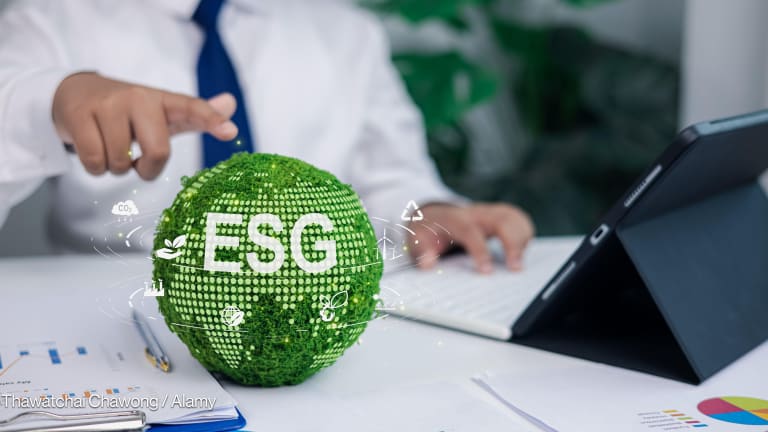
NEW YORK — From attacks on journalists to violence against human rights defenders, the COVID-19 pandemic is worsening ongoing human rights violations, according to Michelle Bachelet, United Nations high commissioner for human rights and former president of Chile.
“More than new human rights challenges, what we have seen is that the fast-moving pandemic has, I would say, fallen off a deep social and economic crisis fueled by discrimination and inequalities that existed before the pandemic,” Bachelet said in a recent Skype interview with Devex, speaking from her office in Geneva.
“And what the pandemic has done is deepened and worsened these preexisting human rights problems, particularly for the most vulnerable,” she continued. She described a “two-dimensional human rights crisis,” which started as a health emergency but has quickly descended into the social and economic sphere as well.
COVID-19 should not be used as an “excuse for human rights violations,” Bachelet said in the interview. Public health protocols have called for emergency measures that limit freedoms like mobility and public assembly. But in some cases, governments have pushed the limits of these health regulations, she said.
“It should not be a weapon to quash dissent, for example, or control the population or perpetuate power,” Bachelet emphasized.
“We have seen a lot of excesses. We have seen states that have strengthened their surveillance power, threatening threats to privacy, exceeding what is required for public health, or, for example, harassing journalists and human rights defenders or restricting freedom of expression, freedom of press,” she said. “There's no excuse for emergency powers to do that.”
The U.N. Human Rights Office has identified ongoing human rights violations in a number of countries, including Myanmar and Venezuela, over the last few months. The office has also cited specific, heightened risks of rights violations against already vulnerable populations, including Indigenous peoples, older persons, and migrants.
“COVID-19 exposed the dramatic effect of decades of underspending in health, water, sanitation, housing, social protection, and also policies around labor rights and decent work,” Bachelet said. “All of these can be aggravated by these intersecting forms of discrimination based on age, gender, race or ethnicity, migration, sexual orientation, disability, or health status.”
The rise in violations comes at an especially politically sensitive time, ahead of the upcoming U.S. presidential election, which some experts say will be an important indicator of future alliance with — or continued disengagement from — the United Nations and its principles of human rights.
Bachelet’s predecessor, Zeid Ra’ad al-Hussein, was a vocal critic of President Donald Trump’s human rights record. The U.S. then sought to thwart Bachelet’s bid for the top U.N. human rights position in 2018 and has since reportedly pressured her to leave her post.
The U.S. left the U.N. Human Rights Council in 2018.
Noting that she could not talk politics, Bachelet called for the U.S. government to become “much more vocal and much more engaged” in human rights.
“I would like to have, again, a U.S. who understands the importance of being part of the Human Rights Council, for example, or just plays a more active role in human rights. I think it's needed. A strong voice is needed. And we also need leaders in big countries like the U.S. and others who can understand the importance of working together, building back better in a cooperative way,” Bachelet said.
“COVID-19 exposed the dramatic effect of decades of underspending in health, water, sanitation, housing, social protection, and also policies around labor rights and decent work.”
— Michelle Bachelet, high commissioner for human rights, United NationsShe also called on the U.S. to take more active positions on racism, xenophobia, and other forms of discrimination.
“Freedom of expression does not mean freedom to incite hatred leading to violence and discrimination,” Bachelet said.
Her office is working to address racism, following the rise of the Black Lives Matter movement. Ensuring the rights of LGBTQ people is another area of focus. The office is set to join a group that will make recommendations on how to ensure the rights of LGBTQ people both within and outside the U.N., where this issue has begun to gain traction over the last few years, despite pushback from Russia and other countries.
“It's crucial, because at the same time, we see symptoms, white supremacy groups on the rise, questioning why Black lives matter. I think that is important because all this movement has produced more race awareness and also has challenged public perceptions about police, because victims of police brutality in the U.S. were predominantly male but also shed light that women's access to justice also was very, very, very difficult,” Bachelet said.
Q&A: LGBTQ discrimination expert sees 'paradigm shift' at UN
Countries are starting to see the importance of having a conversation around violence and discrimination, says Victor Madrigal-Borloz, U.N. independent expert on protections for LGBTQ people.
More research is needed to better understand secondary impacts of the pandemic, including the mental health toll on children and older people in particular, said Bachelet, who is trained as a pediatrician.
For Bachelet’s office, routine parts of its work, like visits to prisons, are no longer possible. Meetings with human rights defenders now happen online, and other activities have been modified or postponed.
But in other ways, the human rights office had some advantages when the pandemic hit.
“Unfortunately — but in this case, also fortunately — in many places of the world they don't give us access, we have already developed technology use, capacity building, to do remote monitoring being able to report,” Bachelet said. “We're also using new technology tools and verification approaches, source information.”
“We are adapting,” she added.








